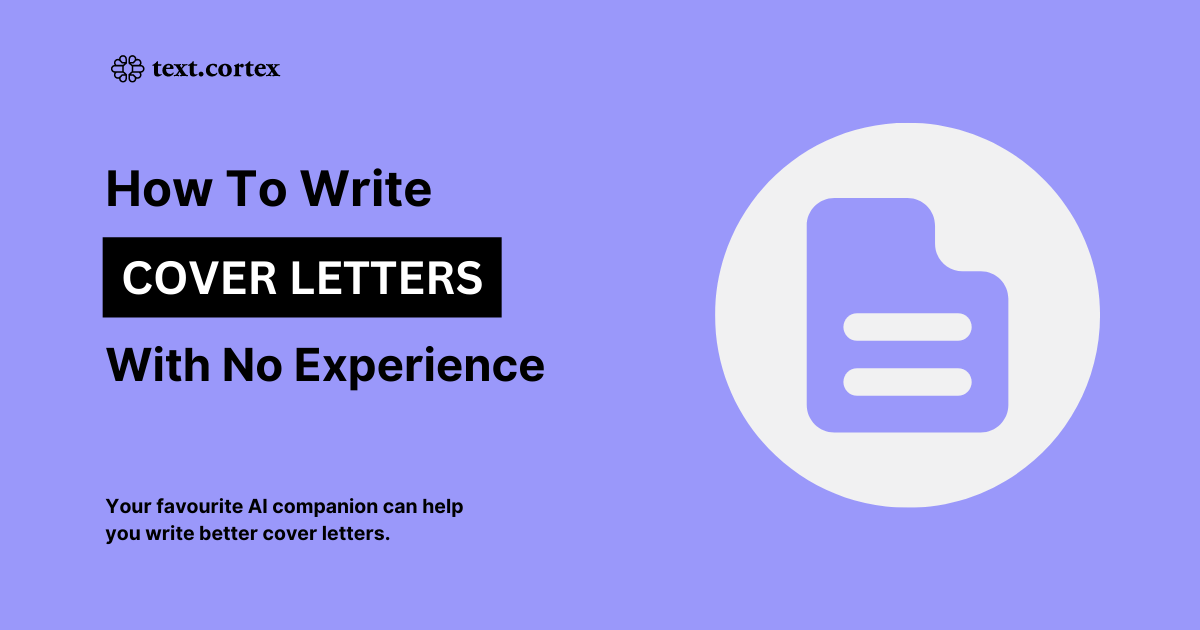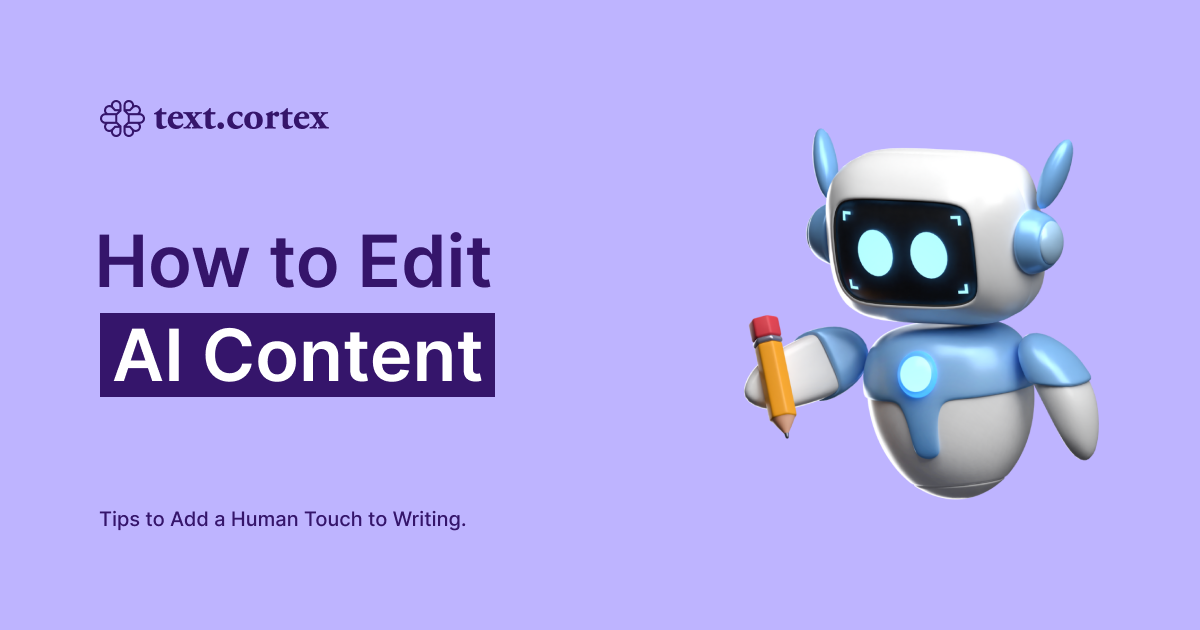If you’re a student or a fresh graduate looking for some advice on how to write a cover letter with no experience, this is the article for you.
How you kickstart your career can be the difference between a successful and a failed one. There are a few key things you can do to get started on the right foot, and these include networking and building a strong resume. Additionally, it’s important to be proactive and take charge of your career by creating a business plan and pursuing opportunities that are relevant to your skills and interests.
Keep reading this article to find out how to write a great cover letter with no experience!
What Is a Cover Letter?
A cover letter is a document that serves as an introduction of sorts, presenting you and your qualifications to a potential employer or institution you’re interested in applying to. It’s useful because it can help set you apart from other candidates and make a strong, positive first impression.

How Do I Write the Perfect Cover Letter?
There is no one-size-fits-all answer to this question, as the best way to write a cover letter will vary depending on your qualifications and the specific job you are applying for. However, there are some general tips you can follow to make sure your cover letter makes a good impression: make sure it’s not longer than one page, start with a strong opening, provide an overview of your qualifications and skills, close by thanking the reader for their time and consideration.
Should I Include My Resume with My Cover Letter?
The decision of whether or not to include a resume with your cover letter depends on a number of factors, including your field, your experience level, and the specific job you are applying for. In general, however, if you can build a strong resume that highlights your relevant skills and experience, it’s usually a good idea to include it with your cover letter: this will give the employer a more complete picture of who you are and what you can bring to the table.
But How Do I Write a Resume if I Have No Experience?
To increase your chances of landing a job or an internship even if you lack experience, first you have to make sure your resume is tailored to the position you’re applying for and highlights any relevant skills or knowledge you have. If you have no work experience, your resume should focus on your education and skills: include information about your relevant coursework, internships, volunteer experiences and extracurricular activities. Highlight the ways in which these experiences have helped you develop the skills needed for the job you are applying for.
Before You Get Started
Before you sit down to actually begin the writing process of your cover letter, there are a few things you should take into consideration.

Take Some Notes
First of all, make sure to take a look at the job ad and make note of any specific skills or qualifications that are required: these are the key points that you will want to highlight in your cover letter.
Do Your Research
Research the company you’re applying for to get an idea about their values and general working culture. This will help you decide if the company is a good fit for you and your career goals.
To start, take a look at the company’s website and read through their About Us page. This should give you a good overview of their history, mission, and values. You can also search for news articles and reviews about the company to get a sense of what they’re currently working on and how they operate.
When you're applying for a job, you’re not just considering the company - you’re also considering whether or not you would be comfortable working for them. Don’t just focus on the salary and benefits - take the time to learn more about them. Otherwise, you’ll likely be unhappy in your new role.
Reflection Time
Finally, take some time to think about what you can offer the company and what value you would bring to the team. This is your chance to sell yourself, so make sure you put your best foot forward!
5 Steps to Craft an Appealing Cover Letter for Any Job/Internship
Crafting a cover letter without prior experience can be challenging. Nevertheless, there are strategies one can employ to make writing a successful one possible.
Follow these 5 steps to start writing your cover letter for any position right away!

Highlight the right skills
Highlight any relevant coursework or extracurricular activities, and emphasize your ability to learn new things quickly. Matching these relevant skills properly in your cover letter, it is advised to look it up what skills the company needs and/or mentions within the job listing on the job search website. Once you have got a good grasp of their needs, make sure to respond them with your capabilities by referring to your skills.
If you lack experience, focus on your transferable skills (they can be used in any job, no matter the field) and explain how they can be applied to the role you are applying for.
Some examples of transferable skills include:
- Communication
- Teamwork
- Problem solving
- Time management
Include hobbies and interests
Do not underestimate what your interests can tell about you to an employer!
Be candid about what interests you and consider how it could be pertinent to the company. For example, if you’re a fan of a certain sports team, think about how you can use that passion to engage with potential customers who are also fans; if you're passionate about sustainability, mention how excited you are to learn more about the company’s sustainable practices and how you could help further their efforts!
You can also use your hobbies and interests to come up with new ideas for products or services that the company could offer. For example, if you’re into gardening, you could suggest a line of products geared towards gardeners, or come up with a new way to market already existing ones.
Consider getting additional skills on your own
Employers appreciate self motivation and discipline so even if you lack practical experience, you can research and acquire in-demand skills on your own.
Whether it's learning how to code or becoming proficient in Photoshop, having additional skills can make you more versatile and marketable. While you may not have the time or inclination to go back to school for an entirely new degree, there are plenty of ways to pick up new skills on your own. Consider online courses, evening classes or even free resources like Codecademy!
Let AI provide some extra help
AI writing tools are great to make the often tedious process of writing faster and easier, especially if you’re working on a cover letter and are not sure what you should type next.
TextCortex comes with a creative suite that includes 60+ templates to help make your workflow less of a pain. And guess what? Our rewrite, long-form post and expand features will work wonders for your cover letter writing process!
Include all the right elements
Your cover letter is your first chance to make a good impression. If possible, it should be addressed to the specific person who is reviewing the job application.
We have prepared a list of the main elements you should always include, with a few examples:
- Date
- Your contact information in bigger and bolder text: first and last name, phone number, email address, address (e.g. 6701 Brookside Road, Independence, OH 44131)
- Hiring manager’s contact details
- A good salutation: address the hiring manager by their name (e.g. Dear [Mr./Ms./Mx.] [Hiring Manager’s Last Name])
- A first paragraph to briefly introduce yourself: (e.g. My name is [name] and I’m applying for [position] I found listed on [website]. I’ve been looking for an opportunity to learn more about [industry] and leverage my [skills]. I’d be thrilled to be given the opportunity to interview for the position as I believe my skills would make me the perfect candidate for the job).
- Use the next paragraphs to explain in more detail why they should hire you: this is the perfect chance to show that you’ve researched the company and have some knowledge about what they do and their values (e.g. I have wanted to get practical work experience in [field] for a really long time and I strongly believe that your company, with its [values and opportunities], would offer me the perfect chance to evaluate my inherent abilities and potential).
- Describe your relevant skills next: hard skills are learned from training or practical experience, soft skills show how you interact with other people in a professional setting (e.g. I possess excellent [skills], I am inclined to teamwork but I am a self starter as well, I am a [qualities] individual that gives great value to [subject matter] and would be very happy to contribute in any way to your work).
- If you have any academic or personal achievements you’d like to share, go for it.
- End your cover letter with a professional conclusion: if you have a portfolio or a resume, direct the hiring manager to it (e.g. I have enclosed my resume/please find the link to my portfolio below. Thank you for your time and consideration, sincerely [your first name] [your last name]).
Remember, if you lack experience, the best thing you can do is link your individual experiences to the organization and its goals: this will illustrate how you plan to help the company achieve them.
And don’t forget to proofread before hitting send!




%20(6).png)

%20(5).png)